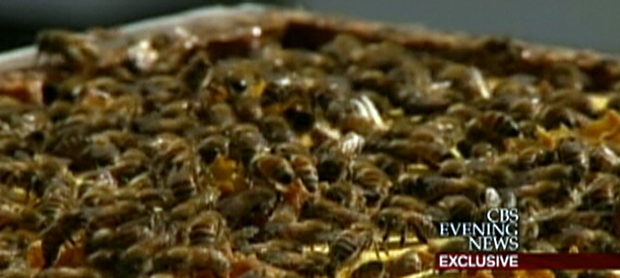Bee Mystery Solved?
John Blackstone is a CBS News correspondent based in San Francisco.
I have been following the mysterious bee die-off since it first hit big time in February 2007. It was in California's central valley where beekeepers from across the country truck in their hives to pollinate the almond orchards. But that year there was a sudden worry that there wouldn't be enough bees to do the job as beekeepers found many of their hives empty. The bees had just disappeared. Some beekeepers reported losing almost all their bees.
There were plenty of theories about what could be the cause from global warming to cell phone signals. That February in the almond orchards I met bee researcher Jerry Bromenshenk from the University of Montana. He was collecting samples of bees from dead and dying hives.
More of John Blackstone's Reporting on the Bee Mystery:
What's Killing the Honey Bees?
The Case of the Vanishing Bees
Almost four years later those bees may have helped solve the mystery. Bromenshenk led a huge collaborative project involving 18 scientists at universities, private research companies and even a U.S. Army lab. Together they screened hundreds of bees for 30,000 different protein fragments and analyzed the results to discover the combination of a unique virus and a parasite that they suspect causes Colony Collapse Disorder.
Being scientists, they can't say they have absolutely discovered the cause until their findings are verified and duplicated by others. But for beekeepers it is probably the most promising news in four years. With a possible cause identified they can start using a fungicide to fight the parasite that is part of the one-two punch that may be killing the bees.
In four years of reporting this story I have been impressed by the hard work of scientists trying to find a cause and by the determination of beekeepers who have been struggling constantly to rebuild their hives. More than anything I have been impressed by the work done by bees. They are such a crucial link in much of our food supply and yet we are more likely to swat at them than appreciate what they do for us. But perhaps I feel that way because in all my visits to bee yards I have yet to be stung!
